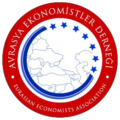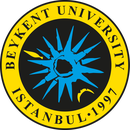
International Conference on Eurasian Economies
29-31 August 2016 – Kaposvár, HUNGARY
Paper detail
Paper ID : 1679
Status : Paper published
Language : Turkish
Topic : Natural Resources and Environment
Presenter: Assoc. Prof. Dr. Cengiz Aytun
Session : 2B Bölgesel Çalışmalar
The Nexus between Environmental Degradation, Income and Energy Consumption in Emerging Countries
Gelişen Ülkelerde Çevresel Bozulma, Gelir Ve Enerji Tüketimi İlişkisi
- Assoc. Prof. Dr. Cengiz Aytun (Çukurova University, Türkiye)
- Assoc. Prof. Dr. Cemil Serhat Akın (Mustafa Kemal University, Türkiye)
- Prof. Dr. Neşe Algan (Çukurova University, Türkiye)
Abstract
Today, especially in developing countries, environmental pollution threatens human life. Environmental quality is one of the most important sources of human welfare. Therefore, it is becoming increasingly important to understand the relationship between environmental degradation, income and energy consumption. The aim of this study is to investigate the nature of relationships among the carbon dioxide emissions, economic growth and energy consumption for emerging economies. For this purpose, Environmental Kuznets Curve hypothesis have been tested for 10 emerging economies for the years from 1980 to 2010. Data were brought together from the World Bank development indicators database. In order to test of Environmental Kuznets Curve hypothesis IPS panel unit root, Pedroni panel cointegration and FMOLS estimation methods are used. Results indicate that energy consumption has a positive and significant effect on carbon dioxide emissions. Results indicate that energy consumption has a positive and significant effect on carbon dioxide emissions. The findings also show that per capita GDP follows an inverted U-shape pattern associated with the Environmental Kuznets Curve hypothesis. This situation validates the policies which assert that environmental pollution decreases with income growth.
JEL codes: C33, O13, Q43
Aytun, Cengiz, Akın, Cemil Serhat, Algan, Neşe (2016). "The Nexus between Environmental Degradation, Income and Energy Consumption in Emerging Countries" in Proceedings of International Conference of Eurasian Economies 2016, pp.228-235, Kaposvár, HUNGARY.
DOI: https://doi.org/10.36880/C07.01679
Session 2B: Bölgesel Çalışmalar





